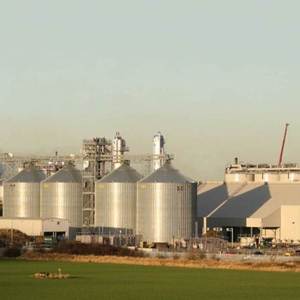CropEnergies diversifies operations, continues production in UK

SOURCE: CropEnergies
December 13, 2022
BY Erin Krueger
U.K. ethanol producer CropEnergies in early December announced that it will continue operations at its Ensus production plant in Wilton, U.K. The company also announced plans to build a renewable ethyl acetate plant in Germany.
CropEnergies in September said it would consider reducing production at its biorefineries in response to rising production costs. The Wilton plant in particular was being impacted by high natural gas and power prices, according to the company.
Advertisement
Advertisement
In a statement released Dec. 2, CropEnergies said higher prices for energy, power and raw materials are continuously impacting operations, and that European ethanol prices have decreased significantly in recent months. Despite these factors, the Ensus plant is expected to continue operations due to the impact of the U.K. Energy Bill Relief Scheme, on gas and power, which is currently in place from October 2022 through March 2023. That scheme is expected to ease some of the cost pressure on the U.K. plant. CropEnergies also said that the decision to continue operations at the Ensus plant will help consumers of biogenic CO2 during challenging supply conditions.
The company is also working to expand operations into biobased chemical production. CropEnergies on Dec. 7 announced plans to develop an ethanol-to-ethyl acetate production facility at the Zeitz Chemical and Industrial Park in Elsteraue, Germany. The company is currently engaged in the detailed and construction engineering, with groundbreaking expected to take place in early 2024. The facility could begin commissioning in mid-2025.
Advertisement
Advertisement
The new production plant, which will be the first of its kind in Europe, will produce 50,000 metric tons of renewable ethyl acetate per year from sustainable ethanol using technology supplied by Johnson Matthey, according to CropEnergies. Ethyl acetate is widely used in the production of flexible packaging and coatings, paints and adhesives, as well as in food, beverage, cosmetics and pharmaceutical applications. The plant will also generate renewable hydrogen as a coproduct.
Related Stories
Bangkok Airways Public Company Limited has officially announced the adoption of sustainable aviation fuel (SAF) on its commercial flights, reinforcing Thailand’s green aviation industry. The initiative took effect starting July 1, 2025.
Avalon Energy Group LLC and Sulzer Chemtech have signed a strategic alliance and partnership agreement to scale up the production of SAF. Under the agreement, Avalon has selected BioFlux technology for its portfolio of SAF projects.
Neste and DHL Express have strengthened their collaboration with the supply of 7,400 tons (9.5 million liters) of neat, i.e. unblended, Neste MY Sustainable Aviation Fuel to DHL Express at Singapore Changi Airport starting July 2025.
CoBank’s latest quarterly research report, released July 10, highlights current uncertainty around the implementation of three biofuel policies, RFS RVOs, small refinery exemptions (SREs) and the 45Z clean fuels production tax credit.
The USDA significantly increased its estimate for 2025-’26 soybean oil use in biofuel production in its latest World Agricultural Supply and Demand Estimates report, released July 11. The outlook for soybean production was revised down.
Upcoming Events










